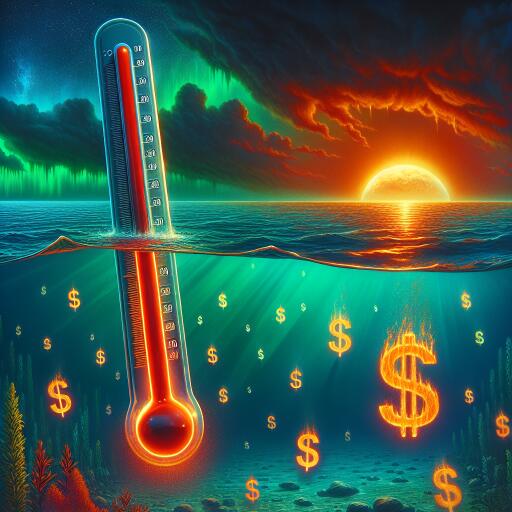
Warm Ocean Warnings: The Impending Financial and Environmental Crisis in Fiji
The increasing temperatures of our oceans pose not just an environmental risk but a significant financial threat, especially to island nations such as Fiji. Rising ocean temperatures, a direct consequence of global warming, are jeopardizing coastal communities and their livelihoods, particularly those dependent on fishing. The warm waters disrupt the natural processes of marine life, affecting their ability to spawn and feed, essential functions for their survival and the health of the marine ecosystem.
During a workshop focused on the conservation of marine wildlife, discussions highlighted the drastic economic repercussions that could ensue if measures to combat this warming trend are not implemented swiftly. The oceans, integral to the global ecosystem, are experiencing an alarming rise in temperatures, which in turn, reduces the oxygen levels in the water. This creates a hostile environment for marine life, leading to phenomena such as fish kills, a distressing sign witnessed before major natural disasters like Cyclone Winston in 2016. Regions such as Fiji’s Coral Coast suffered from these effects, underscoring the urgency of addressing climate change.
The temperature of the ocean has increased by approximately two degrees Celsius, as reported by the Intergovernmental Panel on Climate Change. This seemingly small shift has profound effects on coral reefs, known as the rainforests of the sea, due to their rich biodiversity and the ecosystem services they provide. Coral bleaching, a condition where corals lose their vibrant colors and vital energy sources due to stress from warmer waters, represents a significant threat to these ecosystems. The degradation of coral reefs has ripple effects, impacting not only marine life but also the economic stability and food security of local communities reliant on these ecosystems.
The situation in Fiji exemplifies a global challenge that demands immediate action. The potential economic losses could escalate to millions of dollars, affecting not only the fishing industry but also tourism, a vital sector for many island economies. Protecting our oceans and the myriad of life they support requires concerted efforts at both local and global levels. Reducing greenhouse gas emissions, enforcing sustainable fishing practices, and investing in marine conservation are pivotal steps towards mitigating the impact of ocean warming.
As the evidence mounts, it becomes clear that the consequences of inaction are too grave to ignore. The current trajectory of rising ocean temperatures is unsustainable, threatening not just marine ecosystems but the very fabric of societies that depend on them. It is imperative that we act now to safeguard our blue planet for future generations.





Leave a Reply